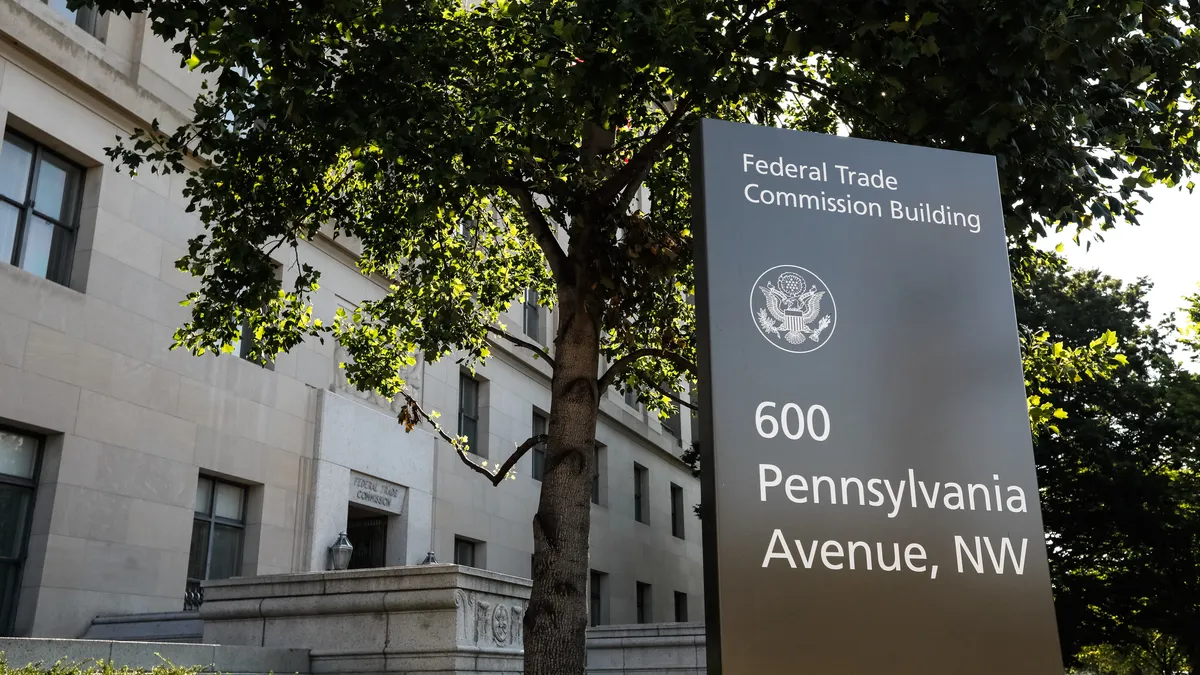Much of the media focus on the Federal Trade Commission’s controversial ban on noncompete agreements has been on the agency’s goal of helping employees leave a company for greener pastures at a rival, potentially lifting the labor market for everyone.
But the ban could wreak havoc on private equity deal-making as investors balk at writing big checks for startups if they can’t get assurances the executive team is going to stay in place, says Matt Prewitt of ArentFox Schiff.
“Retention of managerial and executive talent is part of the going concern value of the business,” Prewitt told Legal Dive. “The executive team is part of what the buyer is buying.”
Even if the deal involves a strategic buyer that doesn’t intend to keep the team in place, the buyer still wants assurances the outgoing executives won’t turn around to become a competitive threat.
“They sure want them parked on the sidelines so they’re not taking their payout from the sale of the company and using that to fund a competing startup business,” said Prewitt, co-leader of the firm’s trade secrets group. Prewitt represents companies that use noncompetes and other agreements to protect their interests.
The rule goes some way toward addressing this concern by applying the ban prospectively for senior executives and including a carve-out for noncompetes that are entered into in connection with the bona fide sale of the company. The carve-out applies to those who have at least a 25% equity stake at the time the agreement is signed.
But these deals tend to be structured in a number of ways that make it unclear if they would be considered a bona fide sale, Prewitt said.
“There are a lot of gray areas in how to think through what actually is permitted here,” he said. “Sometimes it’s ambiguous in a deal structure as to whether there’s actually a sale of a company. There are a variety of deal structures that are dictated by financing or tax or other considerations, and if you’re forced to pick a structure to shoehorn the deal into something that aligns with the rule,” you’re not making decisions based strictly for business reasons.
What’s more, senior executives often have more than one layer of noncompetes they’ve entered into; typically there’s an employment-agreement covenant they sign on taking the job and one they get when they take a grant of equity or equity-like incentive unit as part of a deferred compensation package. If they get an incentive grant each year, as many do, that translates into multiple noncompetes they’ve signed, creating complications when it comes time to determine if the noncompete is tied to the bona fide business sale.
“Are these in connection with a sale of the company?” Prewitt said. “Not really, because [the agreements] are happening in the particular year that you’re getting awarded options or whatever the incentive is.”
Nor is it clear that many of these incentives or options would be considered equity. “Because one of the things that come with equity is voting rights. An option doesn’t. Incentive units don’t,” Prewitt said.
Litigation risk
In some ways the FTC has let the horse out of the barn with its rule. Even if it’s blocked in court on the grounds the agency exceeded its authority, as the U.S. Chamber of Commerce has claimed in the lawsuit it filed the day after the rule was passed, the rationale for the rule that the agency laid out is likely to increase litigation risk as people feel emboldened to breach noncompetes as unfair restraints on competition.
“The FTC has produced a voluminous report,” Prewitt said. “You have to get to page 560 of commentary before you get to the actual text of the rule. That commentary is going to have a lasting impact on the way courts — maybe especially state courts — approach questions of whether, and when, noncompetes should be viewed as a method of unfair competition.”
Some judges will be more skeptical of noncompetes, he said, and some attorneys will have better arguments to make relying on the FTC’s publication for support. And employees are more likely to take a risk in leaving for a competitor because they think the current environment will favor them in a lawsuit.
In a sense, whether or not the rule ultimately takes effect and is enforced, the legal environment that follows will look more like California’s, where noncompetes are already largely banned. There, trade secret litigation is effectively substituting for noncompetes. Something like that nationally could be what businesses are facing.
“California has one of the most robust dockets for trade secrets,” he said. “Trade secrets claims [are in some ways] doing the work that a noncompete claim does in other states, and that litigation tends to be a lot more expensive, complex and more difficult to resolve. Most people think those are bad things. But that has been the California business community’s answer to life without noncompetes: be very aggressive and put huge amounts of money into trade secrets cases.”



















